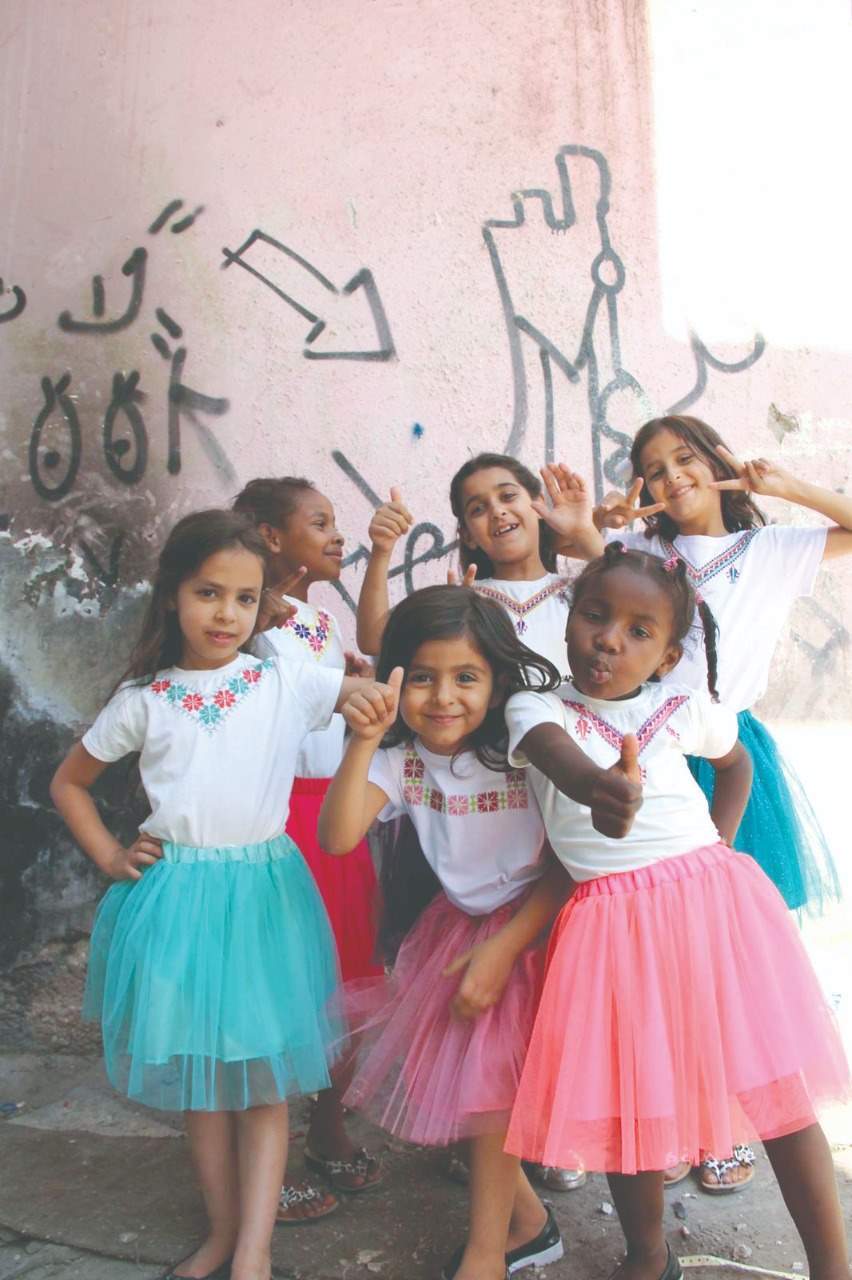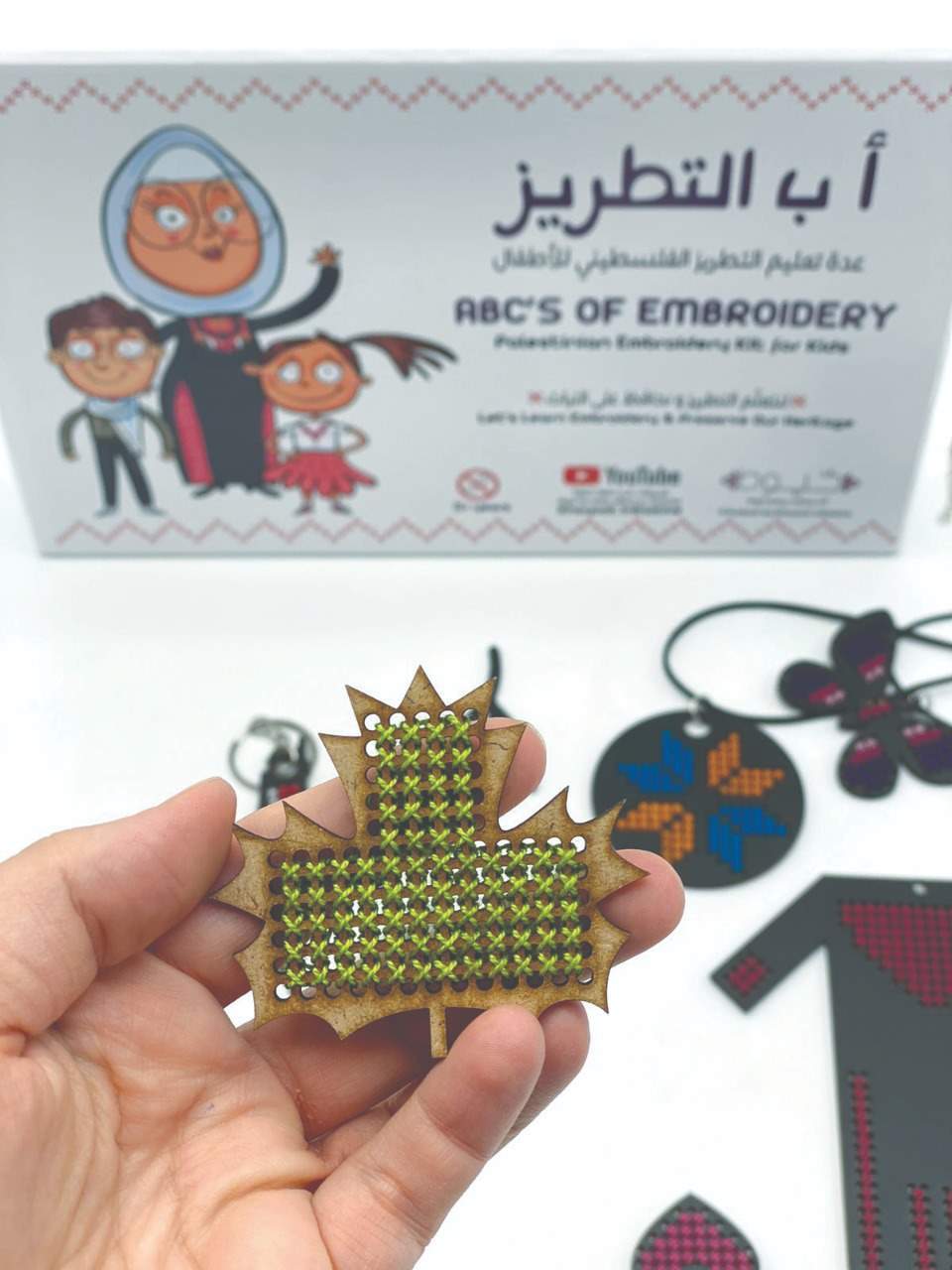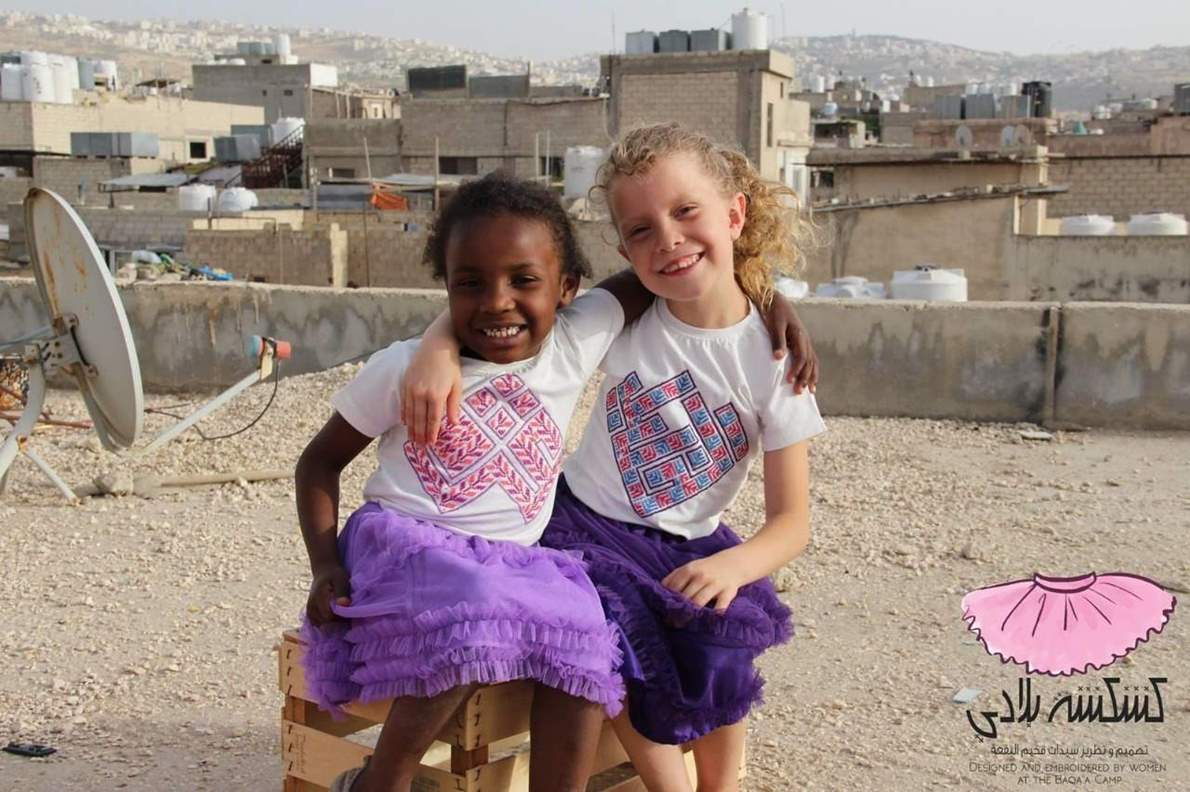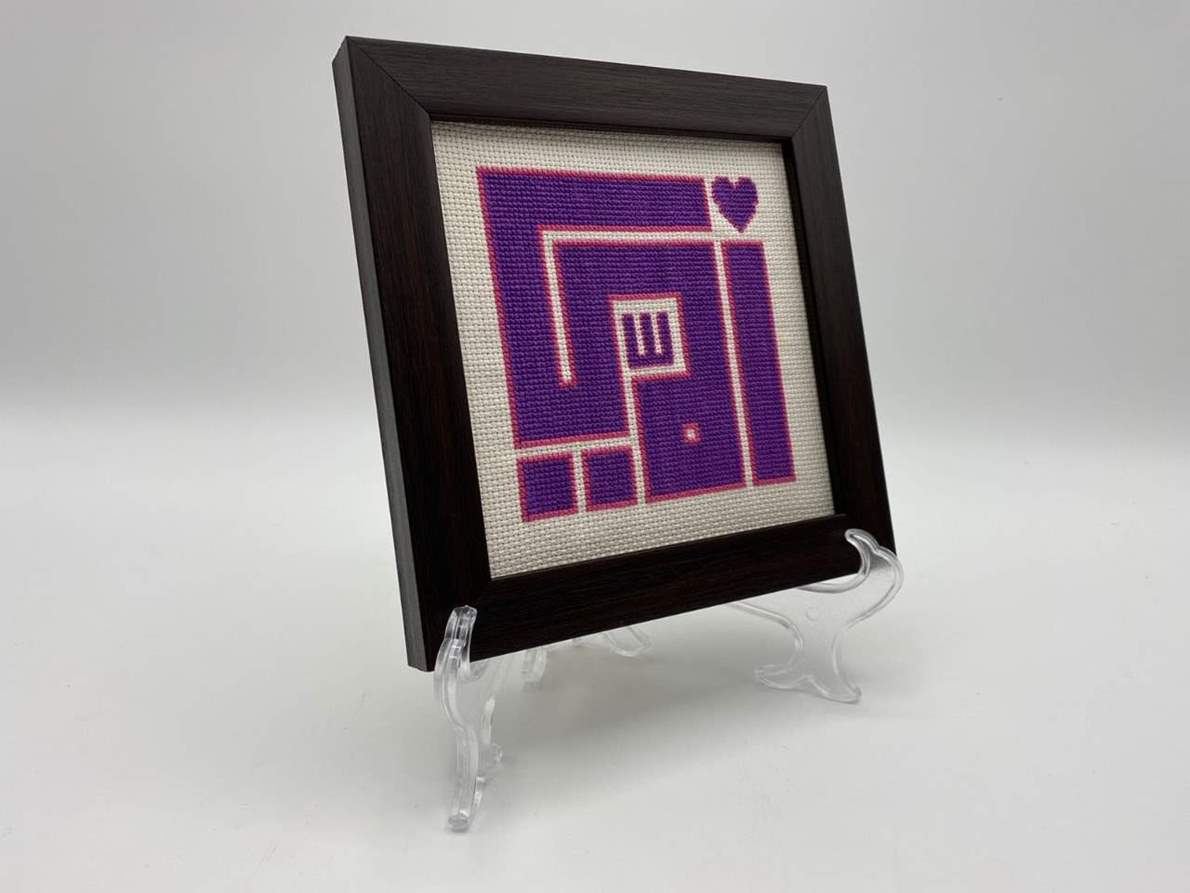AMMAN — Unemployment, poverty, and underage marriages were some of the issues prevalent in Al-Baqaa refugee camp. Touched by these issues and inspired to make a change, Basma Nazer founded her Khoyoot initiative between 2016 –2017 to empower women in the camp.
اضافة اعلان
Nazer, in an interview with Jordan News, shared that her initiative aims to transform women’s role in the camp from being viewed as an economic burden to empowering them to generate their own income.
She also seeks to change the stigma held by men at the camp around women working to make it more accepted and encouraged.
According to Nazer, the idea is to make products that they could sell, so they can give back to the refugee camp by using the profits from the sales to compensate and reward the women for their work and create initiatives that help residents of the camp in general.
 Khoyoot initiative aims to empower the women at Al-Baqaa refugee camp. (Photos: Handout from Basma Nazer)
Khoyoot initiative aims to empower the women at Al-Baqaa refugee camp. (Photos: Handout from Basma Nazer)
The initiatives were done through Khoyoot’s collections. The first collection was called “Kashkasht Bladi,” where women make hand embroidered t-shirts and skirts. For every piece sold, Khoyoot would give a similar piece to a girl at the refugee camp.
The most recent campaign from Khoyoot was “Haqebati,” which translates to “my bag.” This campaign sold hand embroidered tote bags, and with each tote bag they sold, they gave a school bag for a child in the camp.
“Most of our products work this way. If we sell something, we give something back in return. The concept of the initiative is when you buy a piece, you pay for the women’s efforts, and at the same time, you are also helping another cause,” Nazer said.
 Khoyoot initiative aims to empower the women at Al-Baqaa refugee camp. (Photos: Handout from Basma Nazer)
Khoyoot initiative aims to empower the women at Al-Baqaa refugee camp. (Photos: Handout from Basma Nazer)
Khoyoot also created an “ABC’s of embroidery” kit to teach kids the basics. The kit contains threads and patterns that are staples to the Palestinian culture alongside wooden hoops for embroidery. The main character of the kit is named after Nazer’s grandmother, “Tata Huda,” which was drawn by the cartoonist Omar Abdallat.
“We also aim to spread and preserve the culture of the Palestinian embroidery and to teach children from a young age to wear Palestinian embroidery on a daily basis, and to spread the culture of sharing and giving between children,” said Nazer.
Before establishing Khoyoot, Nazer volunteered at Al-Baqaa refugee camp by distributing nutritional supplies and winter clothes, but she felt like she could do more for the camp. So, inspired by the people at the camp, the children, women, and life there, Nazer set out to start her initiative.
 Khoyoot initiative aims to empower the women at Al-Baqaa refugee camp. (Photos: Handout from Basma Nazer)
Khoyoot initiative aims to empower the women at Al-Baqaa refugee camp. (Photos: Handout from Basma Nazer)
Nazer saw the potential of the women at the camp when it came to their skills with embroidery, which is how the idea for her initiative came to be. However, convincing them to join took some effort.
“It took me around a year to establish the first production line and find women who are willing to join us,” Nazer said.
The core goal of the initiative is the economic, social, and cultural empowerment of women. This was done by focusing on solving issues women in the refugee camp face, rehabilitating girls who leave school at a young age and offering them embroidery training to delay the age of marriage, and offering ways for them to make their income, so when they are ready to go out into society, they are able to do so.
Women do not have to master embroidering to participate with Khoyoot, as the initiative provides them with the necessary courses to be able to produce high-quality pieces.
 Khoyoot initiative aims to empower the women at Al-Baqaa refugee camp. (Photos: Handout from Basma Nazer)
Khoyoot initiative aims to empower the women at Al-Baqaa refugee camp. (Photos: Handout from Basma Nazer)
“Some women need more than one course to master embroidering. Especially because we to produce a piece that everyone is willing to buy instead of buying a piece of clothing from a name brand,” Nazer said.
Khoyoot sells internationally and locally. Their products, according to Nazer, are exported to 20 other countries, including the US, Canada, Kuwait, the UK, and Saudi Arabia. The initiative won several awards, including the social entrepreneurship award from Orange Jordan and the Priciness Basma Award for community service.
During
COVID-19, most of Khoyoot’s orders were halted due to the increase in shipping prices, the lack of materials, and their inability to hold training courses for women. Moving forward, Nazer is looking to develop a website for Khoyoot, add two to three new production lines, and train more women.
Read more Lifestyle



